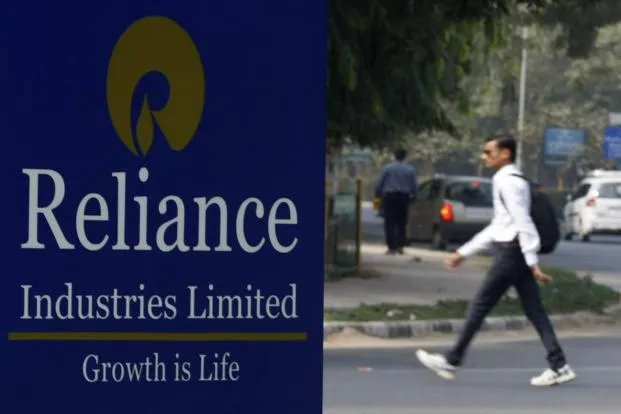This year so far, the RIL stock has risen 17.5%, beating benchmark Sensex index which climbed 7.3% in the same period

RIL shares have significantly outperformed the broader stock markets, with the prices rising nearly 18% year to date. Photo: Reuters
Ashwin Ramarathinam
Mumbai: Reliance Industries Ltd (RIL) hit a market capitalization of $100 billion on Thursday, regaining its 2007 peak and becoming only the second Indian company to cross the milestone.
Shares of RIL closed at ₹1,082.20, up 4.4%, after gaining as much as 6% to a day’s high of ₹ 1,098.80 during the day. At the day’s close, the Mukesh Ambani-led company was valued at $100.03 billion, or ₹6.85 trillion in rupee terms.
The only other Indian company in the $100-billion club is Tata Consultancy Services (TCS) Ltd, the country’s biggest software services exporter, with a market capitalization of ₹7.5 trillion. TCS crossed the $100-billion milestone on 23 April this year.
This year so far, the RIL stock has risen 17.5%, beating benchmark Sensex index which climbed 7.3% in the same period.
Deepak Jasani, head of retail research, HDFC Securities said, “Investors seemed to be enthused by the vision pronounced by the chairman at the annual general meeting (AGM) of a strategic move to a technology platform company with three key verticals of mobile connectivity, fiber connectivity and new commerce platform for the retail business, even as the traditional businesses of energy and petrochemicals continue to perform quite well. This may result in scaling up consumer profits at parity level to energy and petrochemicals business over the next decade.”
According to him, cheap relative valuation in terms of price to earnings ratio (P/E ratio) also enticed investors to look afresh at the stock, when P/E ratios of other stocks have risen sharply over the last few months.
At the company’s AGM earlier this month, Ambani said RIL aims to double sales in about seven years, even as the company explores ways to boost profitability of its mainstay refinery and chemicals businesses.
Ambani, however, does not plan to rely solely on refinery and petrochemicals, and is placing big bets on new consumer businesses to drive growth. RIL has invested about ₹2.5 trillion in telecom unit Reliance Jio Infocomm Ltd, through which the company wants to venture into e-commerce, healthcare, education and agriculture in the next two years.
“As India starts on its high-growth journey to double the size of its economy by 2025, I assure you that the size of Reliance will more than double in the same period,” Ambani told shareholders.
RIL also unveiled its fibre broadband system Jio GigaFiber at its AGM, in a push to make deeper inroads into the wireless and fixed-line internet industry. In the coming months, Reliance Jio will extend fibre connectivity to homes, traders and small businesses. Leveraging on its advanced fibre bandwidth network, Reliance Jio will be offering this service in over 1,100 cities and towns across India.
Thirty analysts surveyed by Bloomberg have a buy rating on the stock whereas five have a hold rating and five have sell. Analysts have estimated RIL to report a consolidated net profit of ₹9,489 crore and net sales of ₹1.23 trillion in the June quarter, according to Bloomberg.